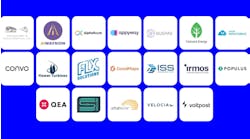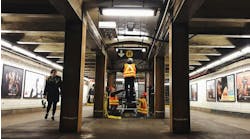Pierce Transit is starting a pilot program April 24 to provide free mobile Wi-Fi hot spots for students who don’t have reliable internet access but still need to complete remote school assignments during Washington State’s “Stay Home, Stay Healthy” order.
Schools across Washington are closed for the remainder of the school year due to the COVID-19 outbreak. However, schools are still providing online instruction, which can create inequitable educational experiences for students who do not have regular, reliable internet access. A 2019 study of broadband access and speed in Pierce County found that nearly 18 percent of Pierce County households have only low-speed internet access, and 3.2 percent have no access at all. This disconnect means students from many low-income households cannot easily access digital classrooms or lessons required to complete their online learning experience, says Pierce Transit.
Pierce Transit is collaborating with Pierce County Emergency Management and local school districts to provide a bus in two locations that will each become its own Wi-Fi hotspot. Students and their caregivers will park near the bus and connect to the bus’s Wi-Fi to interact with teachers, conduct assignment research, upload or download assignments or conduct other types of schoolwork. Students will not enter the bus, and the agency will not provide student supervision. Those accessing the network must also observe social distancing guidelines. Pierce Transit buses have a Wi-Fi range of approximately 100 feet.
Additional program details are as follows:
- The pilot program will run from April 24 through May 1, but may be extended depending on uptake and resource availability.
- Wi-Fi will be available weekdays from 8:00 a.m. to 3:00 p.m.
- Buses will be parked at these locations, selected by Pierce County Emergency Management based on greatest need: Lakewood Towne Center, in the large parking area behind Target and Barnes & Noble; and South Pierce County, Roy “Y” Park & Ride, SR 507 and Pacific Ave. S., Spanaway
Additional locations may be added depending upon need and resources.
“Every student should have equal access to learning, especially when distance learning becomes so critical and internet access holds the key to their full participation,” said Pierce Transit CEO Sue Dreier. “Pierce Transit buses not only carry people but also serve as resources during disasters and situations such as this, when they can play another important role. We are pleased to be able to provide this community service that will remove barriers and help students succeed.”
Pierce Transit first introduced free, systemwide Wi-Fi in 2017, when it equipped every bus with high-speed internet.



